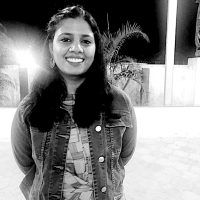|
Listen to this story
|
Kaggle had humble beginnings. What started as a light-hearted competition to predict the voting matrix for Eurovision Song Contest 2010 emerged as one of the most important platforms for the AI/ML, data science and analytics community. On the 12th anniversary of the platform, the co-founders – Anthony Goldbloom and Ben Hamner – made a surprise announcement: The duo is stepping down from their respective positions of CEO and CTO.
“Many have learned machine learning through Kaggle. Of our almost 10MM users, 1.1MM have submitted to the Titanic getting started competition and almost 1MM have completed exercises from Kaggle’s courses. 18.7K college courses have run classroom competitions with 880K students submitting to those competitions,” said Anthony Goldbloom.
Former director of engineering of Google Brain, D Sculley, has taken up the CEO mantle.
.@benhamner and I are stepping down from @kaggle as CEO and CTO to return to our startup roots. Excited to share that D. Sculley is going to be taking over as Kaggle’s new leader: https://t.co/oeCOFBnQqJ 1/7
— Anthony Goldbloom (@antgoldbloom) June 6, 2022
“In my view, the Kaggle community embodies the best parts of the fields of machine learning and data science. Kagglers learn by doing and solve important problems for the world in the process. Kagglers help each other, and spend as much time teaching and sharing knowledge as they do learning and competing. Kagglers care about methods that really work, and create a level of unparalleled empirical rigour,” said Sculley.
Who is D Sculley
Sculley is called the Godfather of MLOps. For the last 20 years, he has worked on machine learning-related projects at Google. He was involved with foundational research on topics like MLOps. One of his most key research projects was “Hidden Technical Debt in Machine Learning Systems”. Using the software engineering framework of technical debt, the team showed it is common to accrue massive ongoing maintenance costs in real-world ML systems.
Sculley started his journey at Google in 2008 after graduating from Tufts University. In the first seven years, he worked on using machine learning for ads. His major work revolved around predicting ad click-through rates, memory savings, methods for assessing and visualising performance, using practical methods for providing confidence estimates for predicted probabilities, and methods for automated management of features. His research work delved into the close relationship between theoretical advances and practical engineering.
Between then and now, Sculley has led production-critical modelling systems, machine learning infrastructure projects, and other research projects. He has also been instrumental in Google’s machine learning education efforts and has helped carry out some of the earliest and most significant works in MLOps.
In an interview, Sculley stressed on the importance of having a community to advance innovation in a field. “Just like dramatically more training data gives more information at the edges, having a larger community is one way of ensuring that you get better stress tests in a wide variety of edge cases,” he said.
In 2017, Google acquired Kaggle. “Kaggle and Google Cloud will foster a thriving community of machine learning developers and data scientists, giving them direct access to the most advanced cloud machine learning environment,” said Fei-Fei Li, chief scientist, Google Cloud AI and Machine Learning. Interestingly, Sculley has a history with Kaggle. In 2011, he launched a semi-supervised machine learning challenge on the platform to find which task – deep belief networks, graphical models, transfer learning, matrix factorisation, or others – work best on large-scale high dimensional learning tasks.
“We’re also very excited to see what the D. and the team accomplish in the years ahead. D. has been operating on the cutting edge of machine learning for the past 20 years, working on very large scale machine learning systems inside Google, doing foundational research on topics like MLOps and leading large research teams. D. also has a long history with Kaggle starting with the semi-supervised machine learning challenge he launched in 2011 (which as it happens, was won by some familiar faces). We’re excited what the combination of D.’s background and history with Kaggle will bring to the future,” said Anthony Goldbloom.






















